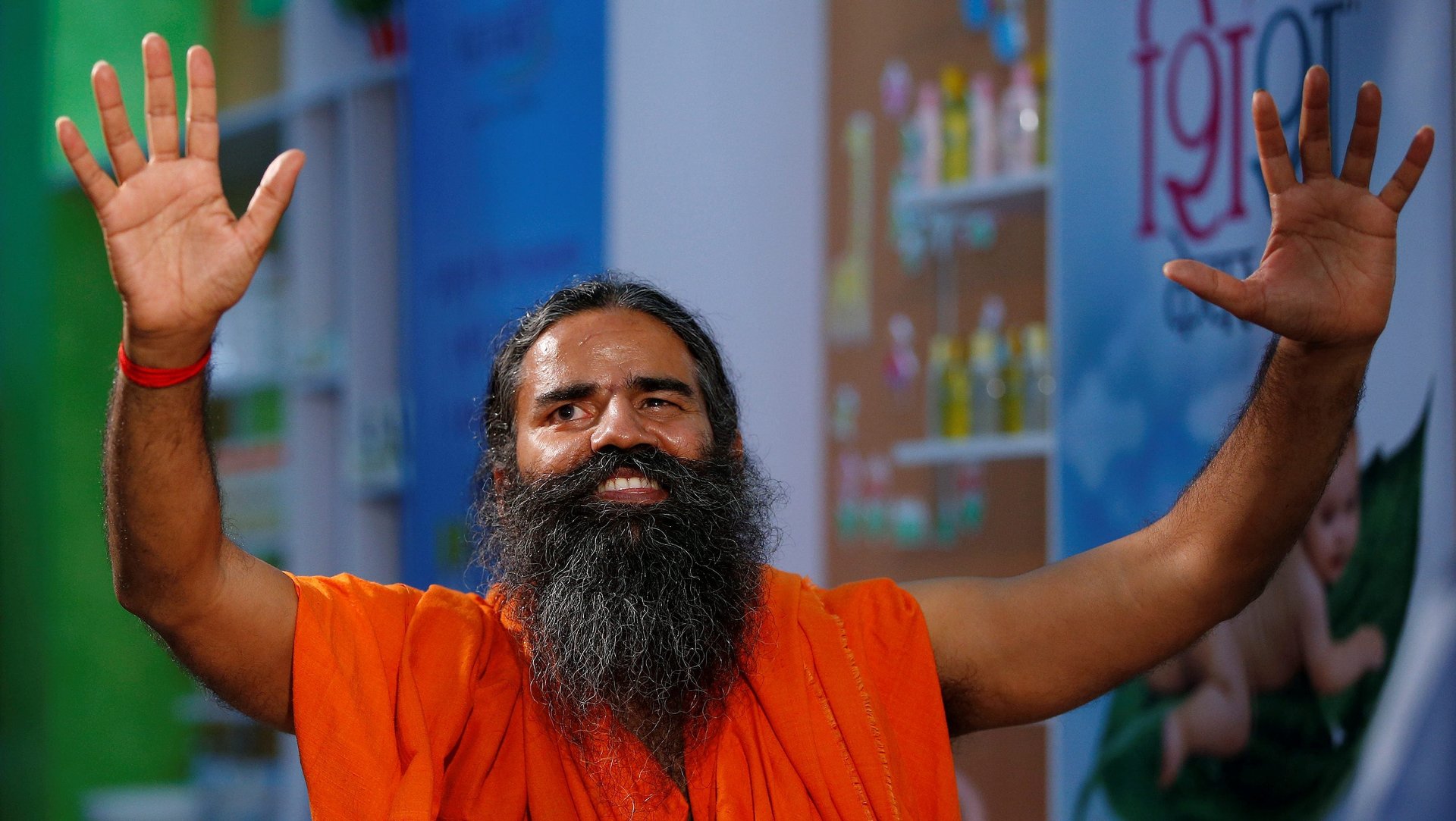A brand expert explains how Patanjali is winning the trust of Indian consumers
The yoga guru Ramdev-led consumer goods company has pretty much cracked the code for winning over Indian consumers, through its products, affordable price points, and marketing itself as an indigenous brand. This has helped it more than double its turnover to Rs10,561 crore for the year ending March 31, 2017, compared to a year ago.


The yoga guru Ramdev-led consumer goods company has pretty much cracked the code for winning over Indian consumers, through its products, affordable price points, and marketing itself as an indigenous brand. This has helped it more than double its turnover to Rs10,561 crore for the year ending March 31, 2017, compared to a year ago.
Its meteoric rise has also pushed its competition, including multinational companies, to launch more natural and herbal products.
Earlier this year, Patanjali emerged as the most trusted brand in the fast-moving consumer goods category in the Brand Trust Report released by data insights company TRA. Overall, its ranking improved from 173 in 2016 to 15 this year. In an October report by the agency, which tracked the attractiveness of brands, Patanjali’s ranking moved up significantly to 12 from 87 in 2016. These reports listed the country’s top brands, surveying 3,000 respondents across 16 states.
“When you look at a brand like Patanjali, which was never on anyone’s mind, it had a selective core group—who were essentially the followers of Baba Ramdev—to which it sold a few products,” N Chandramouli, CEO of TRA, told Quartz. “Once those products started entering the house from, say, grandmothers, or basically the older generation, that’s when the experimentation started. That led to an uptick in demand by others in the family.”
Chandramouli, whose firm has been tracking consumer perception and trust over the last seven years, emphasises that Patanjali’s success is also heavily dependant on its ability to push its offerings across markets and retail channels.
“That’s the second gap they have filled by increasing their access and penetration. You can see them anywhere, in your neighbourhood, in big stores,” Chandramouli said. The firm has bolstered its presence by opening nearly 10,000 exclusive stores across the country and tying up with top grocery retailers such as the Kishore Biyani-owned Big Bazaar. Its products are also available on e-commerce websites.
In fact, Patanjali’s strategy to retail under a single brand name has helped build consumer trust across products, explained Chandramouli. Add to this its marketing blitzkrieg, which has made it one of the top advertisers on Indian television. The company has also been investing heavily in sporting events and reality shows, adding to its mass-market appeal, Chandramouli said.
Meanwhile, rivals are aggressively countering Patanjali. After losing market share in the toothpaste and personal care categories, the country’s largest consumer goods makers such as Colgate and Hindustan Unilever have launched a range of products in the Ayurveda space. These are backed by strong marketing campaigns, celebrity endorsements, and prominent space across supermarket stores.
But there’s work to be done. With the company now planning to double its turnover to Rs20,000 crore by March 2018, Chandramouli reckons that Patanjali needs to build a bigger connect with consumers.
“So far the ideology of the person (Ramdev) has been extended to the brand, but now it has to be nuanced and get its own personality,” he added. “It’s already got its core audience in place. Now, to get to more people, it needs to build that emotional connect.”